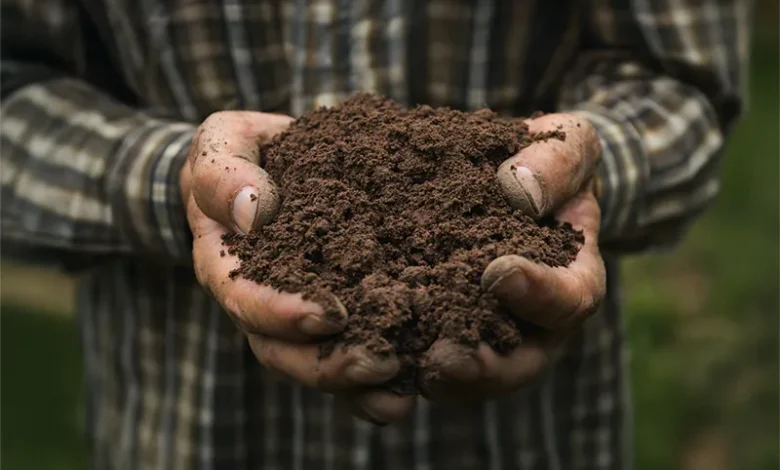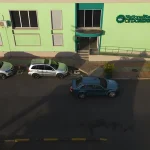Dominica’s Fertile Volcanic Soil

Dominica’s fertile volcanic soil is one of its most significant natural resources, shaping its agricultural success, diverse ecosystems, and environmental resilience. Often referred to as the “Nature Island of the Caribbean“, Dominica owes much of its verdant beauty and agricultural productivity to the rich, nutrient-dense soil derived from its volcanic origins.
The Science Behind Dominica’s Volcanic Soil
Volcanic soil, also known as andisol, is formed from the breakdown of volcanic ash, pumice, and other pyroclastic materials. Over time, these materials will be added to mineral-rich soils containing high levels of essential nutrients like potassium, calcium, magnesium, and phosphorus. Dominica’s active geological history, characterized by frequent eruptions and ongoing geothermal activity, continuously enriches the soil, ensuring its fertility.
The soil’s porous nature enhances its ability to retain water while allowing adequate drainage, essential for robust plant growth. Studies on volcanic soils in the Caribbean have shown that these soils often exhibit higher cation exchange capacities, meaning they hold onto nutrients more effectively, making them available to plants. In Dominica, this contributes to high agricultural yields and supports the lush vegetation that blankets the island.
Agricultural Advantages of Volcanic Soil
The fertile volcanic soil of Dominica has historically been the backbone of its agricultural economy. The island’s banana industry, which flourished in the mid-20th century, relied heavily on the productivity of this soil. Even today, the soil supports diverse crops, including:
- Bananas and plantains: Staple crops that benefit from the potassium-rich soil.
- Citrus fruits: Oranges, limes, lemons, and grapefruits thrive in volcanic soils rich in calcium.
- Root Crops: Dasheen, yams, and sweet potatoes are cultivated in the nutrient-dense soil.
- Spices and herbs: Bay leaves, nutmeg, and vanilla are supported by the soil’s ability to retain moisture and nutrients.
Organic farming initiatives are also gaining traction in Dominica, leveraging the natural fertility of volcanic soil to produce high-quality, chemical-free crops. Programs like the Organic Dominica Initiative aim to transform the island into a sustainable and organic agriculture hub.
Environmental and Ecological Importance
The volcanic soil sustains agriculture and solidifies Dominica’s rich biodiversity. National parks such as Morne Trois Pitons National Park and Morne Diablotin National Park owe their lush rainforests and unique ecosystems to the soil’s fertility. These parks are home to endangered species, including the Sisserou Parrot and Jaco Parrot, as well as endemic species of plants like tree ferns and orchids.
Volcanic soil also contributes to Dominica’s eco-tourism appeal. Visitors are drawn to its pristine landscapes, including geothermal wonders like the Boiling Lake and natural hot springs. Trails like the Waitukubuli National Trail traverse regions of volcanic soil, offering hikers a glimpse of its role in shaping Dominica’s natural beauty.
Challenges in Managing Volcanic Soil
Despite its advantages, volcanic soil presents challenges that require careful management. Dominica’s steep terrain and heavy rainfall make the soil prone to erosion, which can strip it of nutrients. Agricultural practices such as monocropping and deforestation exacerbate this issue. To combat these challenges, the Ministry of Agriculture, the Climate Resilience Execution Agency for Dominica (CREAD), and international bodies have introduced sustainable farming practices and reforestation projects.
Techniques such as contour farming, agroforestry, and cover crops help preserve the soil’s integrity. Additionally, educational programs and grants provided by entities like the Food and Agriculture Organization (FAO) aim to equip local farmers with the knowledge and resources needed to maintain the land’s productivity.
Research and Global Context
Dominica’s volcanic soil has garnered attention from researchers studying the Caribbean’s unique geological and agricultural landscape. Studies have highlighted that Dominica’s volcanic soils exhibit a balanced pH range, making them suitable for various crops. The soil also has high organic matter content, contributing to its fertility.
In the global context, volcanic soils are found in regions like Hawaii, Japan, and Indonesia, but Dominica stands out for its relatively untouched environment and commitment to sustainable practices. These factors make its volcanic soil a critical component of its identity as the “Nature Isle“.
Dominica’s fertile volcanic soil is a natural resource—it is a symbol of resilience, sustainability, and opportunity. By preserving and utilizing this invaluable asset, the island continues to build a future rooted in harmony with nature, benefiting both its people and its environment.




